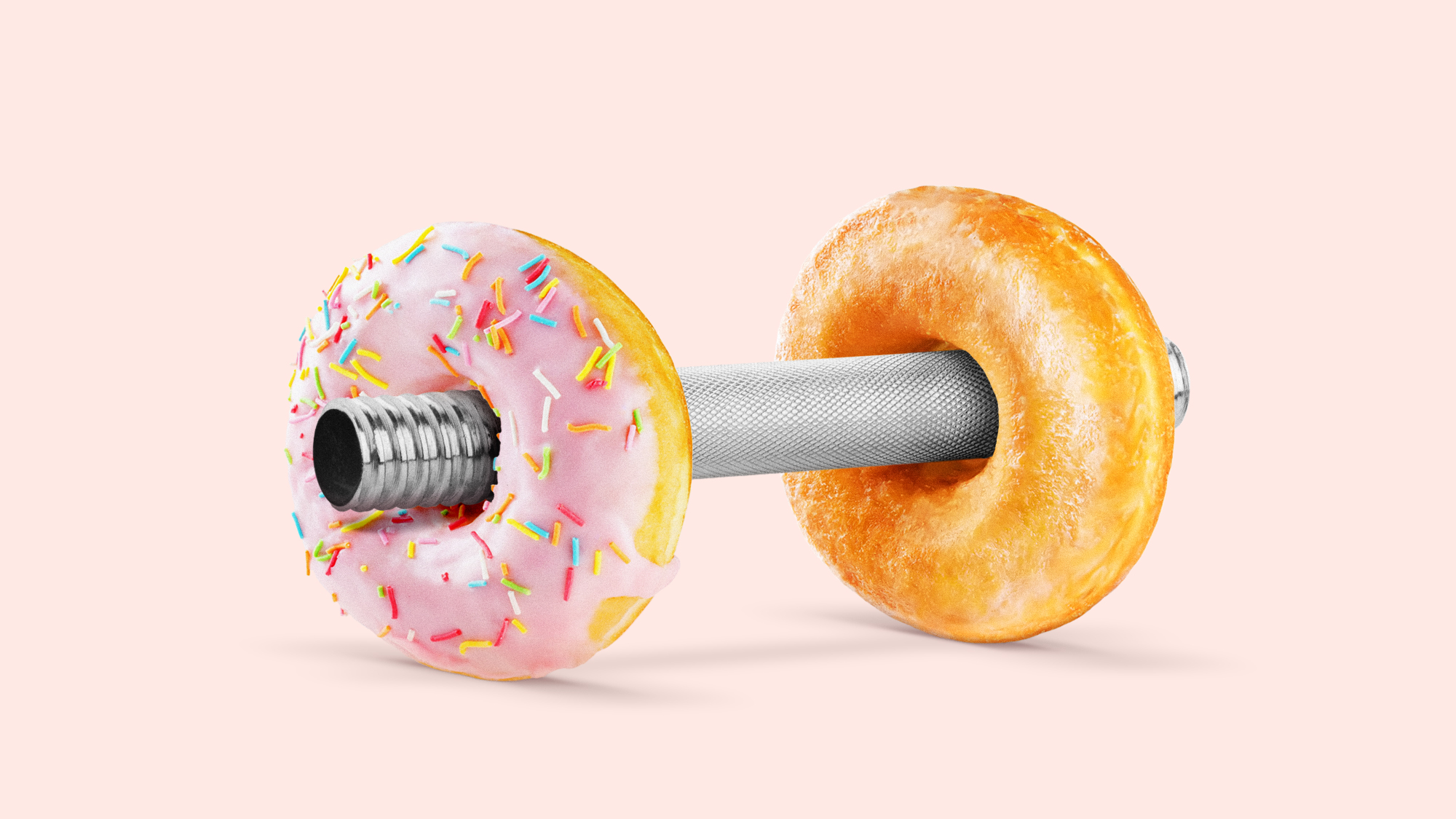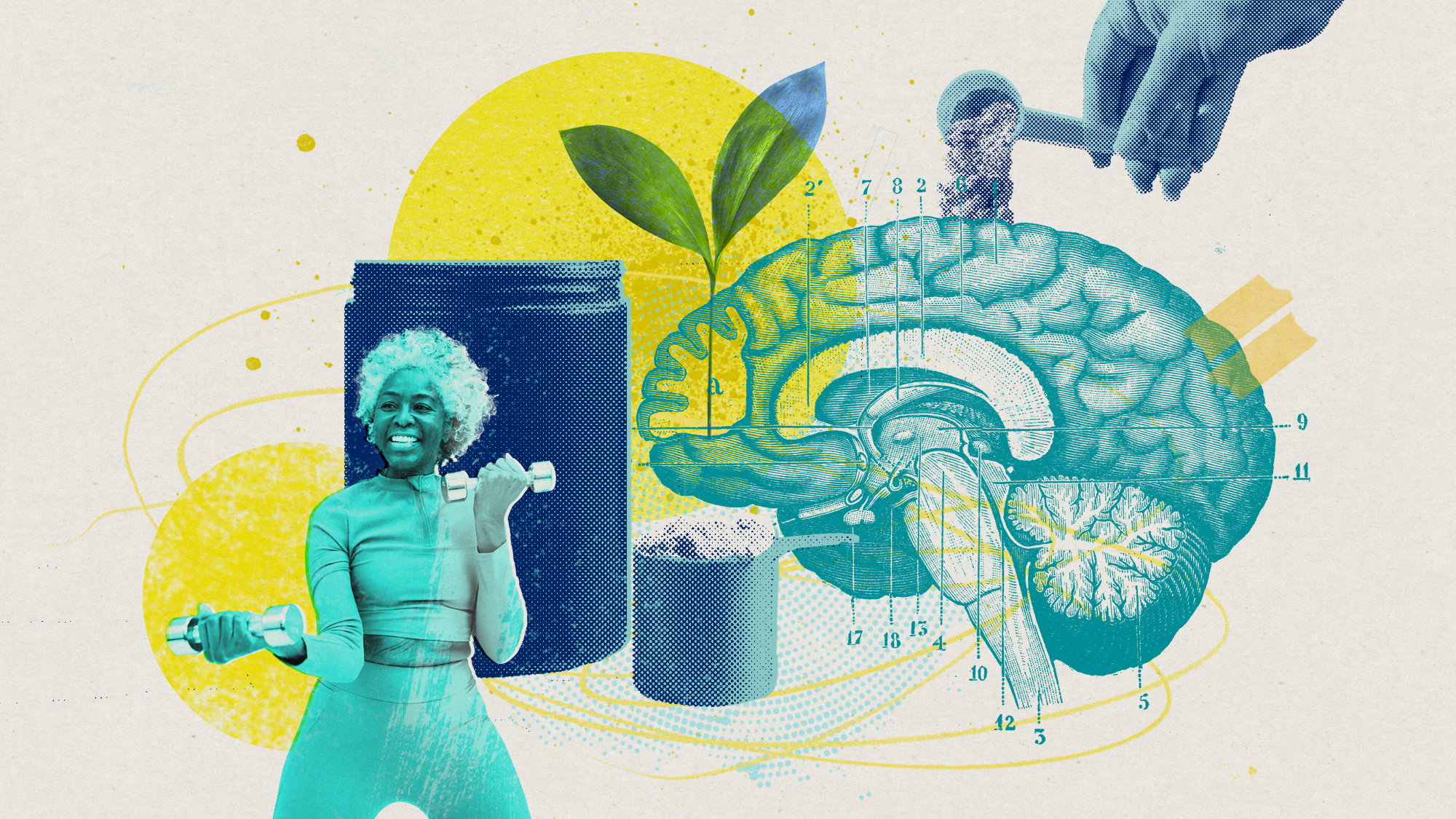Do vegans live longer?
Plant-based lifestyles can drastically lower rates of some serious diseases

A free daily email with the biggest news stories of the day – and the best features from TheWeek.com
You are now subscribed
Your newsletter sign-up was successful
Vegan diets are becoming increasingly popular, with an estimated 2% of the UK population now cutting out meat and dairy products.
With champion athletes such as Novak Djokovic, Lewis Hamilton and Venus Williams swearing by their plant-based diets, the health benefits of going meat-free are becoming more widely publicised.
But can a vegan diet make you live longer? And if so, how?
The Week
Escape your echo chamber. Get the facts behind the news, plus analysis from multiple perspectives.

Sign up for The Week's Free Newsletters
From our morning news briefing to a weekly Good News Newsletter, get the best of The Week delivered directly to your inbox.
From our morning news briefing to a weekly Good News Newsletter, get the best of The Week delivered directly to your inbox.
What is a vegan diet?
For some, veganism is about more than what you eat. It is a “philosophy and way of living which seeks to exclude – as far as is possible and practicable – all forms of exploitation of, and cruelty to, animals for food, clothing or any other purpose”, said the Vegan Society.
A plant-based diet, which excludes animal foods such as meat and fish, dairy, eggs and honey, is part of a vegan lifestyle.
Do vegans live longer?
A 2013 study published in the JAMA Internal Medicine journal found that “vegans have a 9% lower risk of death from all causes compared with omnivores”, according to Live Science.
Another study found a 12% lower risk, but while research published by the American Journal of Clinical Nutrition agreed that a vegan diet can lower rates of certain chronic diseases, it did not find evidence that veganism led to a longer life.
A free daily email with the biggest news stories of the day – and the best features from TheWeek.com
Nevertheless, vegan diets have been linked to “the reduction of risk for multiple chronic health conditions associated with heart disease, type 2 diabetes, certain types of cancer, and obesity”, Brooke Jacob, a registered dietician, told Live Science.
While “it is not surprising” that vegans may live longer, “as following a vegan diet is linked to reduced occurrence of chronic disease… more research is needed to definitively conclude that vegans live longer than non-vegans”, she said.
What are the health benefits of going vegan?
Avoiding the saturated fat in meat can provide a health boost. Processed meat like ham, sausages, salami, bacon, smoked and canned meat have been classed as class-1 carcinogens by the World Health Organization, “the same classification as tobacco smoking, asbestos, and radioactive barium”, said Vegan Food and Living.
Dairy and eggs, which vegans don’t consume, are also high in saturated fat. Vegans and vegetarians “on average” tend to eat more “nutritious, whole plant-foods”, said the publication.
Indeed, said Live Science, healthy lifestyle habits such as “eating whole foods, exercising, drinking enough water… might be more prevalent in the vegan community”. Similarly, a study that found that vegetarians live up to six or nine years longer also discovered that vegetarians are also more likely to exercise, be married, smoke less and drink less alcohol, said Quartz.
But while vegan fast food options “might sound like a guilt-free alternative”, they are “often worse for your health than the meat equivalent”, warned William Park at the BBC. For example, salt is usually added to vegan fast foods to “give the same meaty, rewarding sensation that would otherwise be missing”, he said.
And the NHS advises that “if you do not plan your diet properly, you could miss out on essential nutrients, such as calcium, iron, vitamin B12, iodine and selenium”.
How can I eat a healthy vegan diet?
Veganuary suggests that new vegans focus on consuming enough protein, as well as calcium, iron, vitamin B12 and other minerals.
“If we choose wholefoods, legumes, nuts, fruits, spices, herbs and some of the 20,000 edible plants that exist in the world, we can experience an incredible improvement in our health while enjoying some wonderful flavours,” said the non-profit group.
And the NHS states that “you can get the nutrients you need from eating a varied and balanced vegan diet including fortified foods and supplements”.
Chas Newkey-Burden has been part of The Week Digital team for more than a decade and a journalist for 25 years, starting out on the irreverent football weekly 90 Minutes, before moving to lifestyle magazines Loaded and Attitude. He was a columnist for The Big Issue and landed a world exclusive with David Beckham that became the weekly magazine’s bestselling issue. He now writes regularly for The Guardian, The Telegraph, The Independent, Metro, FourFourTwo and the i new site. He is also the author of a number of non-fiction books.
-
 ‘States that set ambitious climate targets are already feeling the tension’
‘States that set ambitious climate targets are already feeling the tension’Instant Opinion Opinion, comment and editorials of the day
-
 Mixing up mixology: The year ahead in cocktail and bar trends
Mixing up mixology: The year ahead in cocktail and bar trendsthe week recommends It’s hojicha vs. matcha, plus a whole lot more
-
 Labor secretary’s husband barred amid assault probe
Labor secretary’s husband barred amid assault probeSpeed Read Shawn DeRemer, the husband of Labor Secretary Lori Chavez-DeRemer, has been accused of sexual assault
-
 The truth about vitamin supplements
The truth about vitamin supplementsThe Explainer UK industry worth £559 million but scientific evidence of health benefits is ‘complicated’
-
 Obesity drugs: Will Trump’s plan lower costs?
Obesity drugs: Will Trump’s plan lower costs?Feature Even $149 a month, the advertised price for a starting dose of a still-in-development GLP-1 pill on TrumpRx, will be too big a burden for the many Americans ‘struggling to afford groceries’
-
 Covid-19 mRNA vaccines could help fight cancer
Covid-19 mRNA vaccines could help fight cancerUnder the radar They boost the immune system
-
 The battle of the weight-loss drugs
The battle of the weight-loss drugsTalking Point Can Novo Nordisk and Eli Lilly regain their former stock market glory? A lot is riding on next year's pills
-
 Food may contribute more to obesity than exercise
Food may contribute more to obesity than exerciseUnder the radar The devil's in the diet
-
 Deadly fungus tied to a pharaoh's tomb may help fight cancer
Deadly fungus tied to a pharaoh's tomb may help fight cancerUnder the radar A once fearsome curse could be a blessing
-
 'Poo pills' and the war on superbugs
'Poo pills' and the war on superbugsThe Explainer Antimicrobial resistance is causing millions of deaths. Could a faeces-filled pill change all that?
-
 'Wonder drug': the potential health benefits of creatine
'Wonder drug': the potential health benefits of creatineThe Explainer Popular fitness supplement shows promise in easing symptoms of everything from depression to menopause and could even help prevent Alzheimer's